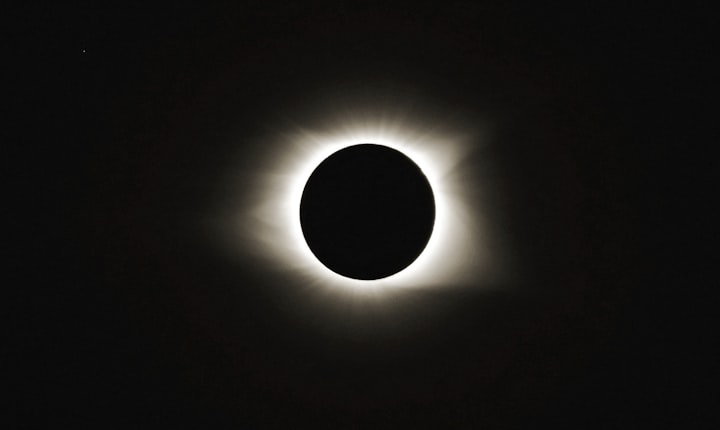Tourism of Pakistan: Discover the Natural Beauty, Cultural Diversity, and Adventure Opportunities
Unveiling Pakistan's Wonders: Explore Majestic Landscapes, Rich Heritage, and Thrilling Adventures

Tourism of Pakistan
Pakistan, a land of breathtaking landscapes and rich cultural heritage, offers a diverse range of experiences for tourists. From majestic mountain ranges to historical sites, from bustling cities to serene beaches, Pakistan has something for everyone. In this article, we will explore the wonders of tourism in Pakistan and delve into its natural beauty, cultural diversity, adventure opportunities, religious significance, gastronomic delights, and urban attractions.
Introduction
Pakistan, located in South Asia, is a country blessed with immense natural beauty and a vibrant cultural tapestry. Despite its share of challenges, Pakistan's tourism industry has been steadily growing as more and more travelers discover its hidden gems. Let's embark on a virtual journey and explore the wonders that await visitors in Pakistan.
Natural Beauty of Pakistan
Mountain Ranges
Pakistan is home to some of the world's highest mountain ranges, including the mighty Himalayas, Karakoram, and Hindu Kush. These majestic peaks, such as K2, Nanga Parbat, and Rakaposhi, attract adventure enthusiasts from around the globe. Trekking and mountaineering opportunities abound, allowing visitors to witness awe-inspiring landscapes and conquer thrilling summits.
Rivers and Lakes
The country is crisscrossed by numerous rivers, including the mighty Indus, which has shaped the fertile plains of Punjab and Sindh. Additionally, Pakistan boasts picturesque lakes, such as the mesmerizing Lake Saif-ul-Malook and the serene Attabad Lake. These water bodies offer opportunities for boating, fishing, and leisurely picnics amidst breathtaking surroundings.
Deserts
The Thar Desert, spanning across the southeastern region of Pakistan, showcases a starkly different landscape. Sand dunes, camel safaris, and vibrant cultural festivities make this desert an intriguing destination for those seeking a unique experience. The Cholistan Desert, with its rich cultural heritage and historic forts, is another desert gem worth exploring.
Beaches
Pakistan's coastline along the Arabian Sea is dotted with pristine beaches. From the tranquil shores of Gwadar to the bustling beachfronts of Karachi, these coastal areas offer a delightful escape from the hustle and bustle of city life. Visitors can enjoy swimming, water sports, and fresh seafood while basking in the sun-kissed beauty of the Arabian Sea.
Forests
The lush green forests of Pakistan provide a haven for nature lovers. The scenic beauty of places like Murree, Nathia Gali, and Swat Valley is unparalleled. These regions offer opportunities for hiking, birdwatching, and rejuvenating amidst nature's bounty.
Cultural Diversity
Pakistan's rich cultural heritage is a testament to its historical significance and diverse influences. The country is home to several UNESCO World Heritage Sites and architectural marvels that reflect its multicultural past.
Historical Sites
The ancient city of Taxila, the archaeological ruins of Mohenjo-daro, and the grand forts of Lahore are just a few examples of Pakistan's historical significance. These sites offer glimpses into the country's rich history and provide a unique perspective on the ancient civilizations that once thrived here.
Architectural Marvels
The Badshahi Mosque in Lahore and the Shah Jahan Mosque in Thatta showcase the exquisite craftsmanship of Mughal-era architecture. These grand structures, adorned with intricate carvings and beautiful domes, are not only places of worship but also architectural marvels that attract visitors from far and wide.
Festivals and Traditions
Pakistan's cultural diversity is beautifully celebrated through vibrant festivals and traditions. The colorful Basant festival in Lahore, the mystic Sufi festivals in Sindh, and the joyous Eid celebrations across the country are just a few examples of the rich tapestry of traditions that visitors can witness and participate in.
Adventure Tourism
Pakistan offers a plethora of adventure tourism opportunities that cater to thrill-seekers and adrenaline junkies.
Trekking and Mountaineering
With its vast mountain ranges, Pakistan is a paradise for trekkers and mountaineers. The Karakoram Highway, often called the Eighth Wonder of the World, provides access to iconic treks like the K2 Base Camp and the Baltoro Glacier. These treks offer breathtaking views of glaciers, towering peaks, and remote valleys that leave visitors awe-inspired.
Water Sports
The rivers and lakes of Pakistan present opportunities for a variety of water sports, including white-water rafting, kayaking, and jet skiing. The Neelum Valley in Azad Kashmir and the Hunza River in Gilgit-Baltistan are popular destinations for water sports enthusiasts.
Wildlife Safaris
Pakistan's national parks, such as Hingol National Park and Deosai National Park, are havens for wildlife enthusiasts. Visitors can spot rare species like the Markhor, Pakistan's national animal, and the majestic Snow Leopard. These wildlife safaris provide a chance to witness the beauty of nature up close.
Religious Tourism
Pakistan is home to numerous mosques, shrines, and religious sites that hold immense significance for followers of various faiths.
Mosques and Shrines
The Badshahi Mosque in Lahore and the Faisal Mosque in Islamabad are architectural wonders and important places of worship. The Shrine of Data Ganj Bakhsh in Lahore and the Shrine of Lal Shahbaz Qalandar in Sindh are revered by both Muslims and people of other faiths, attracting pilgrims from near and far.
Religious Festivals
Religious festivals like Eid-ul-Fitr and Eid-ul-Adha are celebrated with great fervor across the country. These festivities offer a glimpse into Pakistan's religious traditions and provide visitors with an opportunity to immerse themselves in the local culture.
Gastro Tourism
Pakistan's culinary heritage is as diverse as its cultural tapestry. Gastro tourism allows visitors to explore the country's rich culinary traditions.
Traditional Cuisine
From succulent kebabs and aromatic biryanis to spicy curries and delectable sweets, Pakistani cuisine tantalizes the taste buds. Each region has its own specialty, such as Lahori cuisine known for its spicy flavors and Peshawari cuisine famous for its succulent barbecue.
Food Streets and Bazaars
Exploring the bustling food streets and bazaars of Pakistan is a feast for the senses. From the historic Food Street in Lahore's old city to the Anarkali Bazaar, these vibrant hubs offer a wide array of street food delights and traditional culinary experiences.
Urban Tourism
Pakistan's modern cities blend the old and the new, offering a mix of historical charm and contemporary attractions.
Modern Cities
Karachi, Lahore, and Islamabad are bustling metropolises that showcase Pakistan's urban development. These cities offer modern infrastructure, shopping malls, fine-dining restaurants, and a vibrant nightlife scene.
Shopping and Entertainment
From traditional handicrafts and exquisite textiles to designer brands and international franchises, Pakistan's shopping scene caters to all tastes. Malls like Emporium Mall in Lahore and Centaurus Mall in Islamabad provide world-class shopping experiences. Additionally, the country's cinema industry offers entertainment options ranging from blockbuster movies to live theater performances.
Conclusion
Pakistan's tourism industry has immense potential, thanks to its natural beauty, cultural diversity, adventure opportunities, religious significance, gastronomic delights, and urban attractions. The country offers a unique and immersive experience for travelers seeking to explore its wonders. Whether it's trekking in the Karakoram, exploring historical sites, savoring delicious cuisine, or immersing oneself in vibrant festivals, Pakistan has something to offer every visitor.
Frequently Asked Questions {FAQs}
What are the best months to visit Pakistan?
The best time to visit Pakistan varies depending on the region and the activities you plan to engage in. Generally, the spring (March to May) and autumn (September to November) seasons offer pleasant weather and are ideal for outdoor activities. However, specific regions like Northern Pakistan are best visited during the summer months (June to August) when the weather is more favorable for treks and mountaineering.
Is Pakistan a safe country for tourists?
While Pakistan has its security challenges, the country has made significant efforts to enhance the safety and security of tourists. Popular tourist destinations are well-guarded, and the government has implemented measures to ensure the safety of visitors. It is always advisable to stay informed about the current situation and follow any travel advisories issued by your home country.
What are the must-visit tourist destinations in Pakistan?
Pakistan offers a wide range of must-visit destinations. Some of the top attractions include the ancient city of Taxila, the awe-inspiring Hunza Valley, the historical sites of Lahore, the scenic beauty of Swat Valley, and the cultural richness of Karachi. The Karakoram Highway and the northern areas, including Gilgit-Baltistan and Azad Kashmir, are also highly recommended for their stunning landscapes.
How can I travel within Pakistan?
Pakistan has a well-connected transportation network that includes domestic flights, trains, buses, and private taxis. Domestic airlines operate flights between major cities, while trains are a popular mode of transportation for longer distances. Buses and taxis provide convenient options for travel within cities and towns. It's advisable to plan your itinerary in advance and choose the mode of transportation that suits your preferences and budget.
Are there any restrictions on photography in Pakistan?
Generally, photography is allowed at most tourist sites in Pakistan. However, it's important to respect the rules and guidelines specific to each location. Some sites, such as military installations and certain religious sites, may have restrictions on photography. It's recommended to seek permission or guidance from local authorities or site management to ensure compliance with any specific photography regulations.






Comments
There are no comments for this story
Be the first to respond and start the conversation.